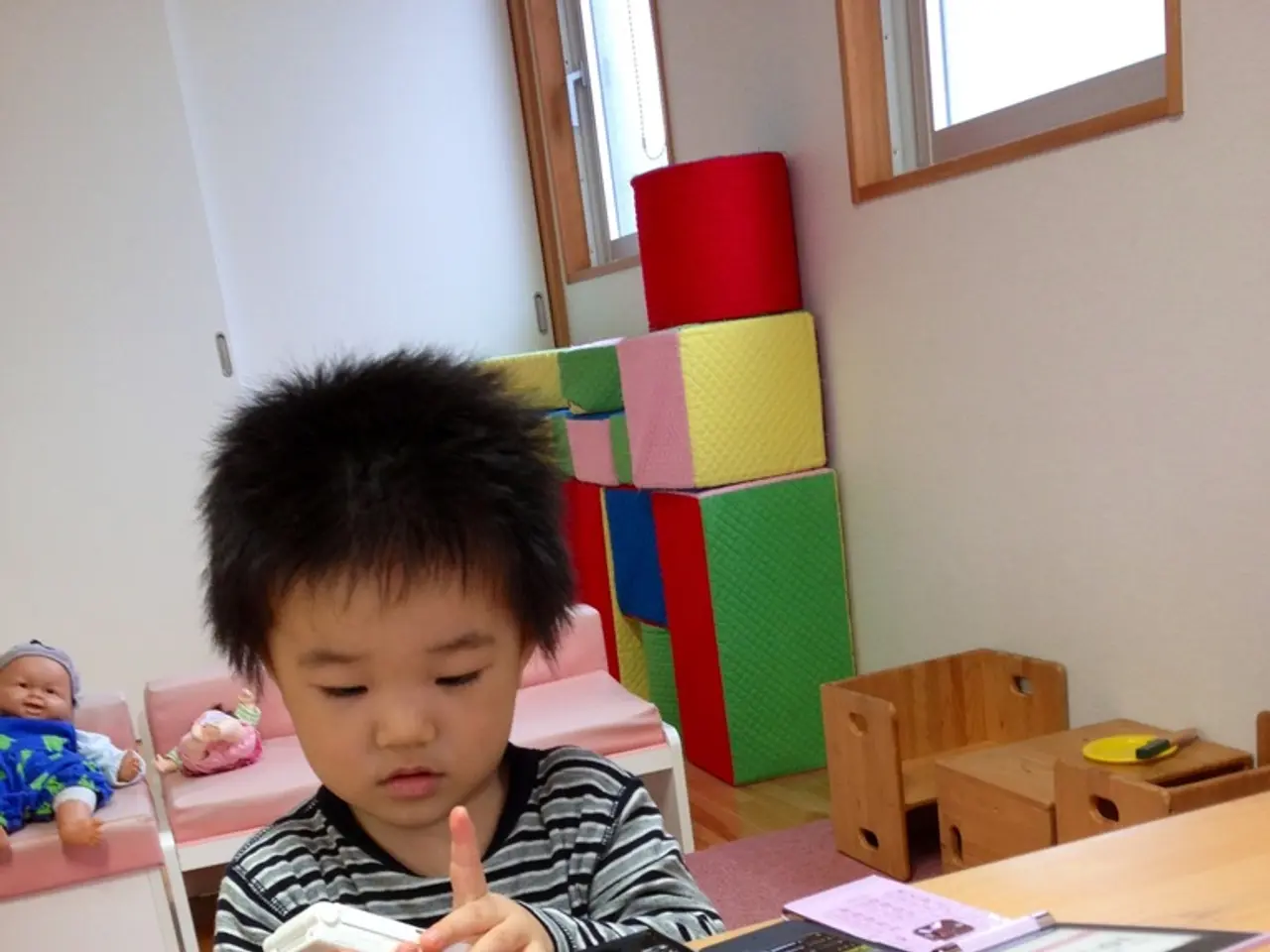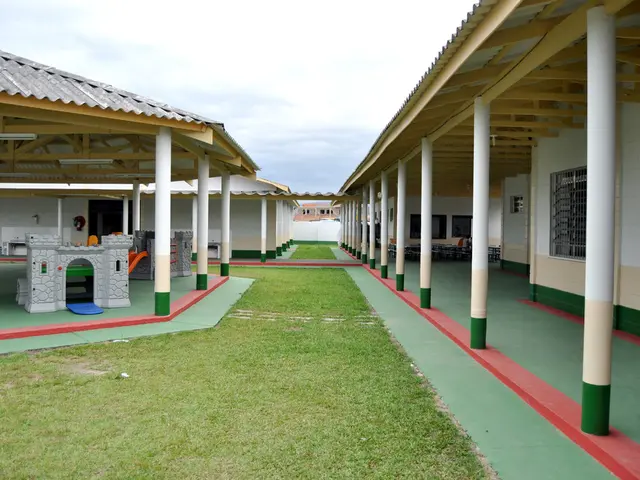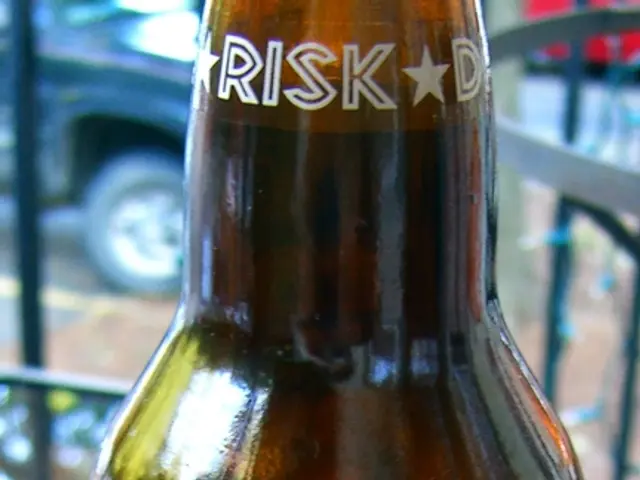Restricting smartphone usage among children is the ambition of Voigt.
Thuringia, Germany, is taking significant steps to address the growing concern over digital device usage among children and young people. The Thuringian Ministry of Education has implemented strict restrictions on smartphone and digital device usage in schools, particularly during lessons, breaks, and after-school care[1].
In a recent article, Thuringia's Minister-President, Mario Voigt (CDU), calls for a "mindful society" and advocates for a substantial curtailment of smartphone use and social media access for the youth[2]. Voigt's proposal extends beyond school hours, suggesting age restrictions on smartphones and social media platforms to better protect the youth[3].
The Minister-President's initiative includes several key points. He encourages the establishment of digital-free zones in public spaces such as parks and libraries for children and young people[2]. To promote a healthy relationship with technology, Voigt proposes the creation of digital detox weekends for children and young people in Thuringia[2].
Voigt also emphasizes the importance of fostering digital literacy skills among children and young people, encouraging schools to serve as smartphone-free zones to promote learning[2]. He advocates for the development of digital ombudspersons in schools to help children and young people navigate digital issues[1].
Moreover, Voigt calls for parents to set clear rules for digital usage for their children, acting as real-life role models[2]. He also proposes limiting access to smartphones and social media for children under 16 during non-school hours[3].
In his guest article in the "Frankfurter Allgemeine Zeitung" (Wednesday edition), Voigt emphasizes the need for regular digital detox days for teachers and staff in schools, and the promotion of sports and arts as alternatives to digital entertainment for children and young people[2].
The EU's recent regulations mandate stricter cybersecurity for all smart devices, enhancing safety but not specifically addressing usage limits[4]. However, Thuringia's policy approach blends these legally backed school bans on smartphone use with the Minister-President's political calls for broader regulatory actions targeting children's access to smartphones and social media.
In summary, Thuringia's policy environment around digital device management for young people is evolving, with a focus on balancing digital education needs with safeguarding child development and social wellbeing.
References:
[1] Thuringian Ministry of Education, "Regulations on Digital Device Usage in Schools," 2022. [2] Voigt, M., "A Call for a Mindful Society: Balancing Technology and Child Development," Frankfurter Allgemeine Zeitung, August 2025. [3] Thuringian Ministry of Education, "Statement by Minister-President Mario Voigt on Digital Device Management for Children and Young People," August 2025. [4] European Union, "Regulations on Cybersecurity for Smart Devices," August 2025. [5] European Union, "Impact of Regulations on Smartphone Safety for Children," August 2025.
- The Thuringian Minister-President, Mario Voigt, advocates for the creation of digital-free zones in health-and-wellness spaces like parks and libraries to promote healthier relationships with technology.
- In a bid to protect children, Voigt proposes the development of science-oriented digital ombudspersons in schools, who can guide young people on navigating digital issues.
- Beyond the school hours, Voigt suggests stricter age restrictions on technology usage, such assmartphone and social media platforms, to ensure better health and wellness for the youth.




